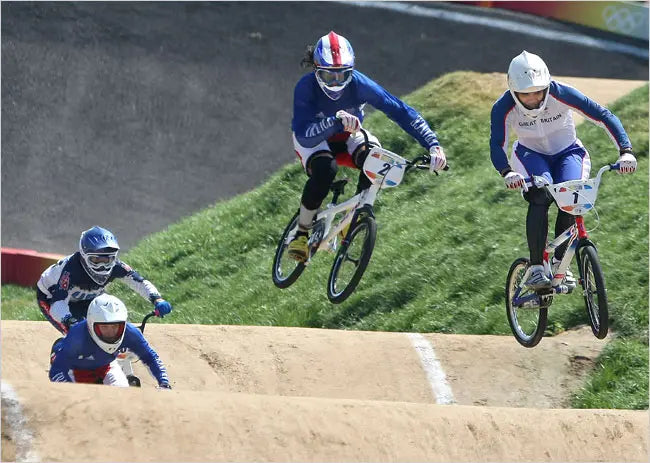Although cycling has been on the Olympic roster since the first edition of the modern games in Athens 1896, at that time it was only men allowed to take part.
It took 88 years for the world to catch up to the power of women’s sport and permit them to participate in cycling disciplines at these historical games.
The Los Angeles edition in 1984 saw the first women's road race, with Connie Carpenter wowing the crowds with her tactical, home victory.

Carpenter won the 79 kilometre road race, after edging ahead of teammate Rebecca Twigg at the finish line, by less than half a wheel length to cap her already incredible career with a gold medal.
Four years later in Seoul, women were finally allowed to race in the track discipline, albeit only in one event. The knockout sprint format saw Erika Salumäe winning Gold in the inaugural event.

In Atlanta 1996 women were taking part in the first Olympic appearance for mountain biking, with Italian Paola Pezzo taking the win. At 11 kilometres into the 31.9km race, during a long uphill stretch, she powered into the lead, taking everyone by surprise and pulled away until her lead reached 1 minute 42 seconds, despite the temperature of 40°C and humidity. She proceeded to win the historic race by 1 minute 7 seconds, making her the first female Olympic gold medalist in the history of the sport.
Women’s BMX Racing was finally introduced at the Beijing 2008 games, with Anne-Caroline Chausson becoming the first ever Olympic champion in this discipline.
Even though she had made a name for herself in downhill MTB, Anne-Caroline Chausson's background was in BMX. In 1987 she claimed her first world title in the U10s BMX, but from the age of 16 she was focussing on MTB downhill.
When the IOC announced its decision to include BMX in the official programme for the 2008 Olympic Games in Beijing, Anne-Caro dusted down her BMX and began preparing for the greatest challenge of her career. She trained intensively to bring her skills up to competition level, and in the months before the Games in 2008 finished runner-up in both the European and World BMX Championships.

In the gold medal race on 22 August 2008, the Frenchwoman, stormed out of the gate and took the lead, measuring each of her jumps to perfection she crossed the finish line in first place. Her immediate competitor Shanaze Reade, meanwhile, wiped out, opening the door to a French one-two, as Laetitia Le Corguillé finished behind Chausson to claim silver.
For Chausson, the victory represented a poignant career high. After all, it was on a BMX that she launched her meteoric ride to the top, and being back on a BMX in Beijing, she was, for the first time, able to enjoy the truly global recognition her remarkable talents deserved.
In her own words: “This is the greatest title of my career. It means recognition, it’s my crowning glory. This medal was not won in the shadows.”
Jumping back to this year, at the Paris 2024 games, the same number of women and men will compete in road, track, mountain bike, BMX Racing and BMX Freestyle, for the first time.

With an incredible, tactical win in the cross country MTB for Pauline Ferrand-Prevot already, we can’t wait to watch the rest of the women's events with BMX on 1st August and the road race taking place on 4th August.

